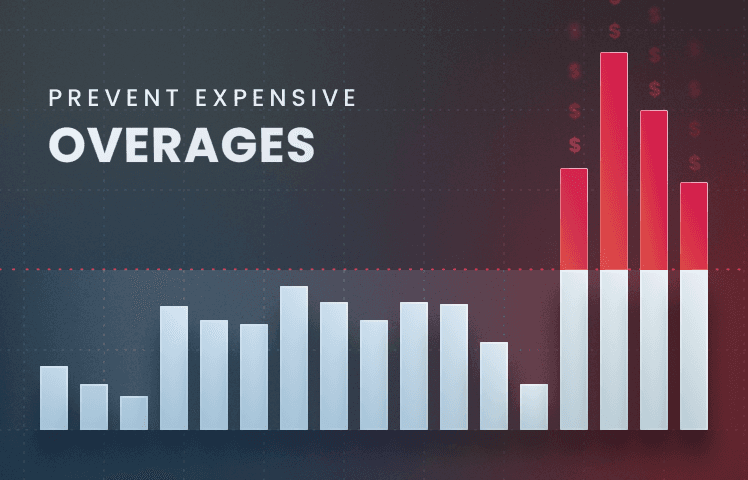
Companies that utilize tiered or usage-based pricing models must safeguard their profit margins against abusive overuse. This is especially important for businesses in the AI and DevOps sectors that rely on costly LLM, GPU, and cloud resources. It's critical to have a rapid and proactive protection; otherwise, businesses can face unpaid invoices or even insolvency. This article offers insights from our experience at OpenMeter in assisting clients in shielding their operations from abusive usage and costly overages.
When Does Overage Happen?
Overage and abusive usage arises when a client consumes resources in a manner, deliberate or accidental, that the set pricing no longer compensates for the costs. The typical scenarios include:
- Surpassing Plan Caps: Clients vastly overstepping their plan boundaries.
- Exhausting Resource Quotes: Cloud resources not covered by pricing (network, etc.)
- Significant Usage Surges: Resulting from DDoS attacks or software bugs
1. Surpassing Plan Caps
If a client on a tiered plan surpasses their limits, vendors often prompt them to transition to a higher-tiered plan. Utilizing proactive metering, we can alert users as they near their plan's boundary. If necessary, we can even trigger the billing system to transition the user's plan seamlessly.
2. Exhausting Quotes
Crafting a pricing structure that mirrors cloud expenses is challenging. This is why many products, especially in the DevOps and AI space, have resource quotes defined, covering network, storage, and API-call limits. For example, Vercel, the company behind Next.js, has over twenty resource limits on its pricing page. As a vendor, it's important to monitor these consumption caps and preemptively counter any immediate misuse. This can be challenging for DevOps or AI companies, which generate a large volume of data they need to turn into actions.
3. Large Usage Spikes
Software bugs or DDoS attacks can accumulate unexpected costs. In instances of substantial spending hikes, it's not uncommon for clients to negotiate with providers for bill reductions or cost-sharing. This can be avoided by providing real-time usage transparency to customers so they can control their consumption and spending. When expensive vendors don't provide visibility into usage, customers take action on their own hands and implement third-party usage metering to keep their vendor spending within a budget.
How to protect yourself?
To prevent abusive usage, it's essential to build a system that promptly notifies clients, internal teams, and the billing system. Communication is pivotal, as in many instances, it’s not feasible to cut critical infrastructure your users rely on. Predictive usage analysis and proactive measures are instrumental in safeguarding both your business and your clients. Here's a breakdown of preventive actions:
- Customer Dashboards: Offer a real-time dashboard enabling clients to monitor and control their consumption. Ideally, users can also set up threshold alerts.
- Proactive User Alerts: Notify clients as they near their plan or resource caps, highlighting unusual consumption patterns.
- Usage Gating: While early alerts are beneficial, you must secure margins. This is where usage gating can be critical.
- Billing Thresholds: Implement billing caps to shield against clients unable to honor their financial commitments.
- Overage Charges: With tiered pricing, consider introducing an overage fee or provisions for automatic plan upgrades upon excessive usage.
Challenges in Implementation
While we discussed how abusive usage and overages can be prevented and handled with proactive measures, the actual implementation can be challenging. This is especially true given the need for real-time data from the metering system, a challenge when processing a large volume of usage data or enforcing limits for latency-sensitive online applications. Moreover, forecasting, especially with seasonal fluctuations, can be complex, more so for longer contract durations.


